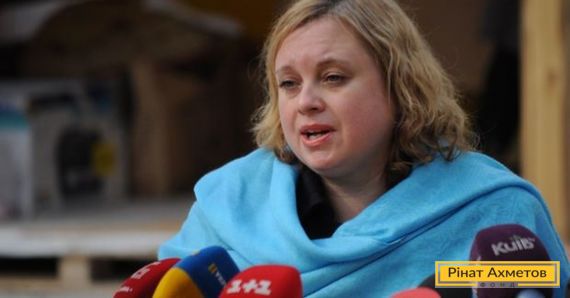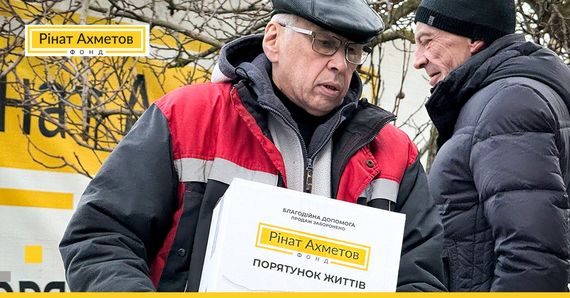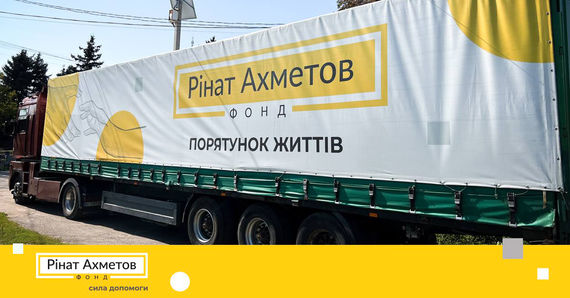Anna Gulevska-Chernysh: «The rules of the game shall be clear to everyone and complied at any level!»

During the presentation of "Humanitarian Map of Donbas: the needs of local civilians and IDPs", which took place in Opera hotel on March 30, there was a discussion of real legislative problems that complicate delivery of assistance to IDPs and residents of ATO area.
Unfortunately, our legislation has always been and remains one of the main problems for those, who provide humanitarian aid to peaceful residents in ATO area and IDPs. Analysing the existing legislative obstacles for humanitarian aid delivery, Anna Gulevska-Chernysh, Director at Ukrainian Philanthropists Forum, emphasized two main moments.
"The first problem is poor regulation of international humanitarian mission activities. Today it is a very important aspect. Humanitarian aid from abroad, which is very much needed here, can enter Ukraine only through international organizations. And they face big problems in Ukraine, the country that requires urgent aid. For example, this is paradox, but they cannot formalize their representative offices as legal entities in Ukraine. Though the conflict in Donbas has been lasting for almost a year, this issue is not solved yet. And the impossibility to open representative office with legal status implies problems with opening bank accounts, employment issues, difficulties with suppliers, purchasing of products and so on. The laws of Ukraine on non-governmental organizations shall be urgently amended, but unfortunately, the state and the Cabinet of Ministers introduce no changes so far, - Anna Gulevska-Chernysh says.
Besides, we could mention the difficulties with employment of foreign volunteers, who arrive to work in Ukraine. The conflict is long-running, which means that volunteers are dealing with our problems not for a month, but much longer. However, our migration rules say that they can stay on our territory only for 90 days and then they have to leave. So the international experts arrive in Ukraine, trying to deal with the situation, organize work, and... As a result they leave the country, because they cannot get a legal employment here. This is an absurd logic!
"The second important set of problems is taxation of targeted assistance", - Anna Gulevska-Chernysh shares. The legal problem is that all targeted assistance in Ukraine is taxable, and according to the Tax Code it is regarded as income. In fall they adopted the Law #668, which formally exempted any aid to IDPs and residents of ATO area from individual income tax. But unfortunately, Ukrainian fiscal services haven't developed the clear tax explanation regarding assistance for IDPs. What is the tax exemption mechanism? What is the list of documents that will be accepted by banks and tax bodies? And here is a curious moment. This law exempts humanitarian aid for the families of injured and killed soldiers from taxation, and procedures for such people were issued, but for some reason they forgot about IDPs.
Besides, our state often brings us quite unexpected surprises. Two weeks ago the Cabinet of Ministers of Ukraine put to the vote of parliament the amendment to the Tax Code, according to which the charitable organizations that will be on the list, approved by the Cabinet of Ministers, will be exempt from income taxes of an individual. The list of international charitable organizations.
"However, the problem is that such term as international charitable organizations does not exist in Ukrainian legal practice. So, this norm is a blank, it doesn't work. And this law can be regarded as discriminatory in relation to Ukrainian charitable organizations, because the "manual control" from regulatory bodies will certainly affect the volume of this aid, - Anna Gulevska-Chernysh assures.
That is why it is important to regulate these problem issues on the initiative of humanitarian organizations as soon as possible! "The rules of the game shall be clear to everyone and complied at any level", - Anna Gulevska-Chernysh stated during the roundtable discussion.



